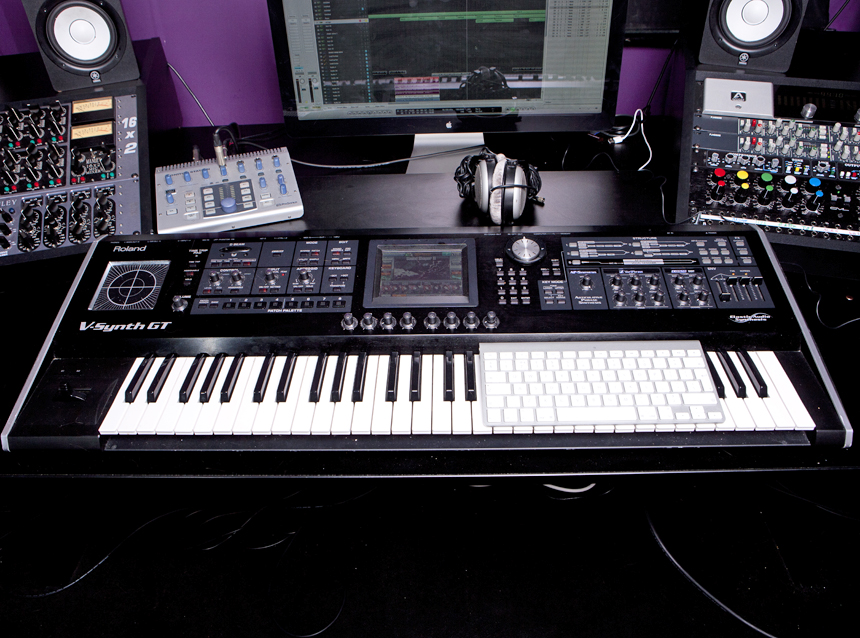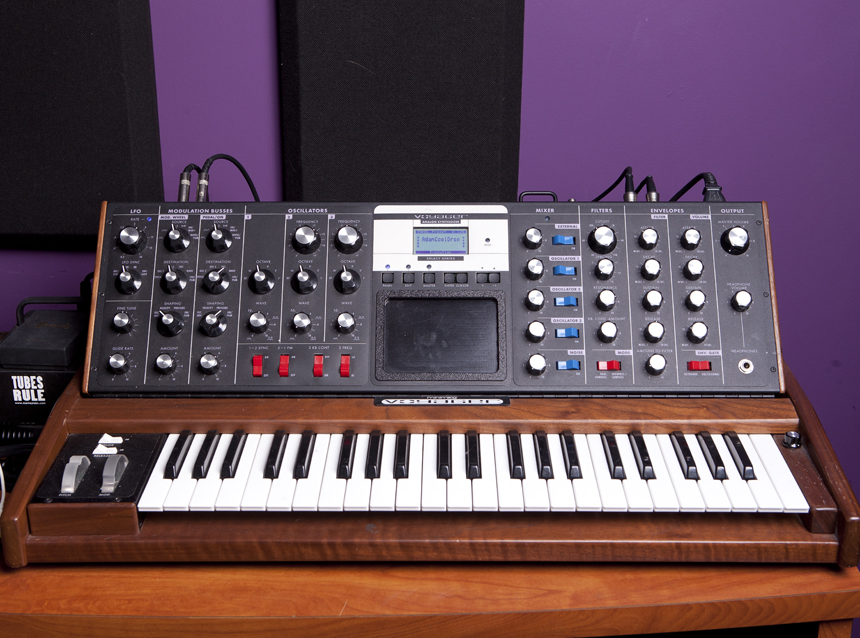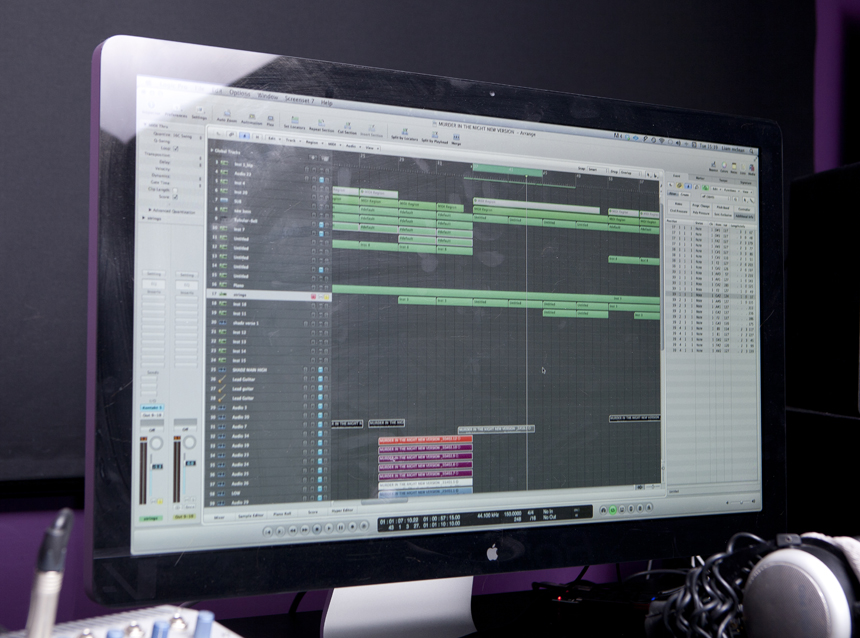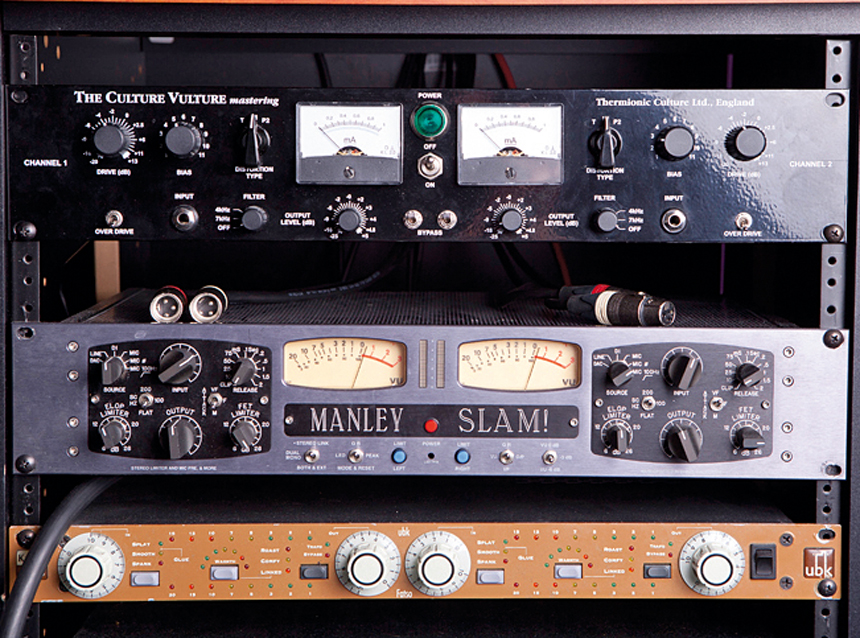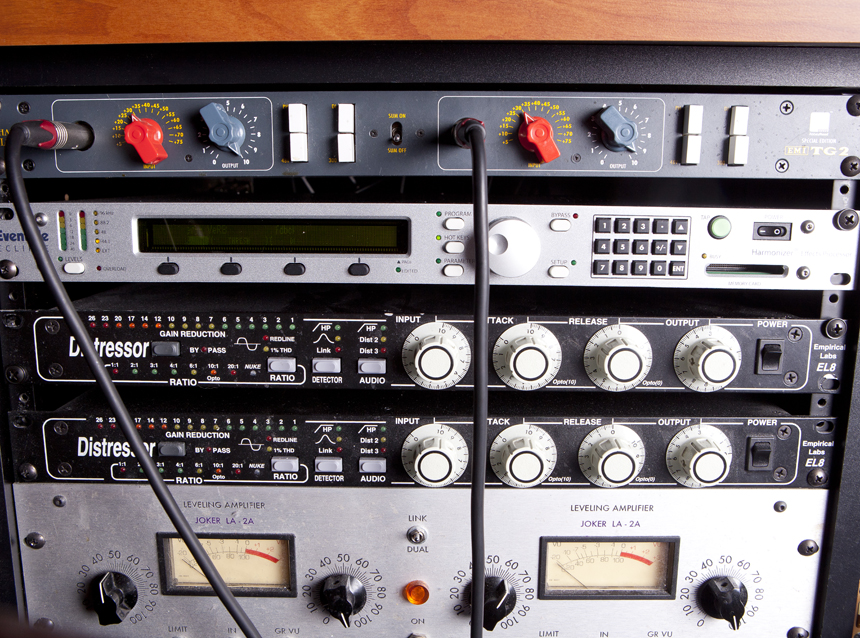In pictures: Joker's Bristol studio
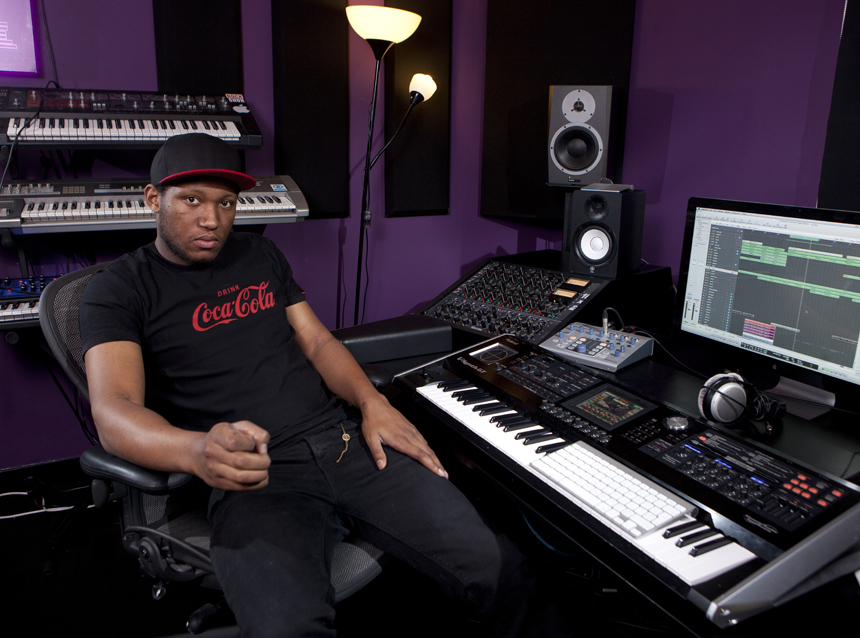
Intro
Bristol has always been considered one of the UK’s capitals of culture. While most cities get stamped with a musical genre, Bristol has managed to evade any one genre and instead emerge as a city obsessed with sound system, dub, jungle and drum ’n’ bass, through to its trip hop legacy and the current wave of dubstep and house.
Liam McLean – under the pseudonym Joker – has risen to become one of the most championed adopted sons of Dubstep. His take onthe genre grabbed attention with the 8-bit- and Garage-influenced sound of Holly Brook Park, Tronand Purple City. His home studio has since grown into one of the slickest we've seen with classic rack gear, mics and synths, alongside custom limiters, compressors and choice EQs.
Joker’s world is a chaotic one, but as soon as he’s in front of Logic, surrounded by his studio, it’s clear where he’s at his most comfortable. But what really strikes you about Joker is his perfectionism – he lives and breathes music of all styles and despite being labelled the ‘King of Bass’, his ear for melody, along with his production skills and enthusiasm, mean he’s unlikely to fade away with any rise and fall in trend.
We managed to pry him away from his DAW for a chat about the gear that fills his brand new purple room...
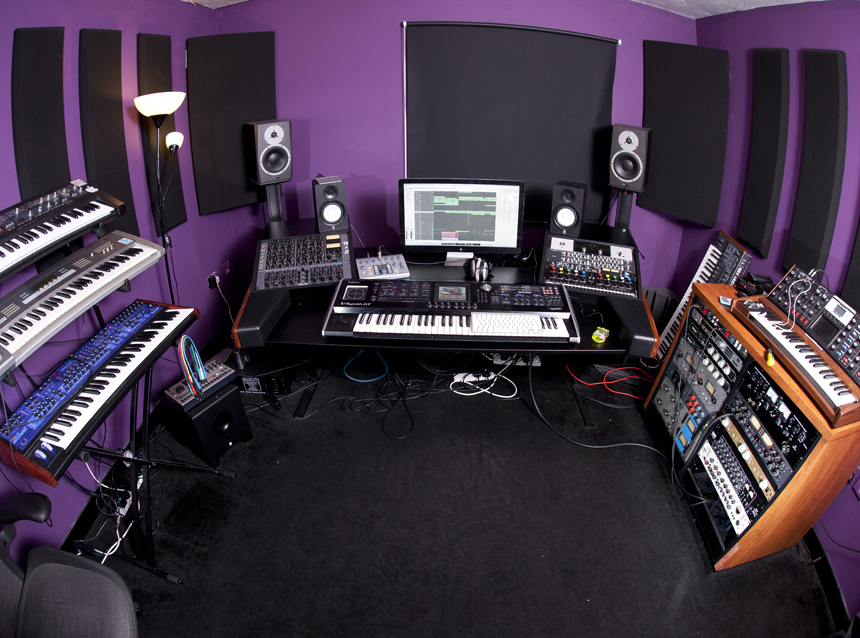
The studio
"In the early days I had nothing – just a shit laptop. I’ve lost over 3,000 tunes easy. We were so hungry to make tunes,me and my friend used to walk around looking for computers that had been thrown away. I found one in someone’s garden and it was really shit– 4GB of hard drive space and 128MB of memory.
"But it worked. I had to delete stuff that you weren’t supposed to delete to make it run faster and get more space. We were deleting applications that made the computer run like the Windows folder.I would’ve deleted the Recycle Bin if I could.
"I’m realclose with Roni Size as well and I used to go down to his studio and see all the gear and I’d be thinking, ‘Wow, this is like all the shit I see in Reason, but for real’. I remember seeing Logic for the first time and everyone was talking about it. The thing that pissed me off about Reason was that you couldn’t use VSTsin it. It was supposed to be used with Logic or Pro Tools or whatever, so I couldn’t record anything into it. I’d messed around on a few hardware synths and they sounded like a track straightaway so I knew I had to get some. I got a copy of Logic Express and a Mac."
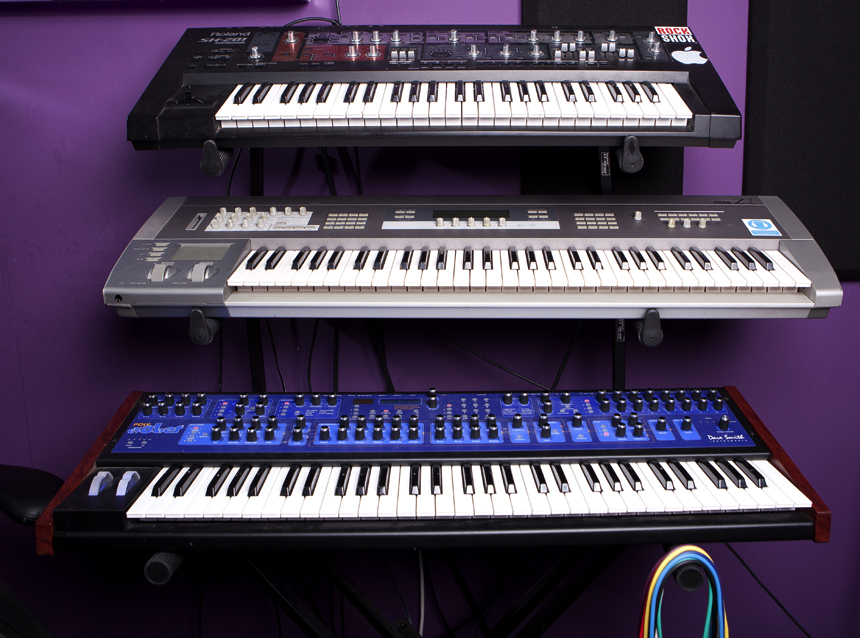
Synths
“Grime is a real synth-based thing, or it was. It was all squarewaves. I was a big fan of Geeneus, Wizzbit, Wiley and Skepta, all their beats were the shit, and I thought the sounds were amazing.
"When I was using Reason’s synths, I always wondered what the real version sounded like and why their sounds were so amazing and why I couldn’t get mine to sound the same. I took my SH-201 to Ginz’s [James Ginzburg, co-founder Multiverse Music, Bristol] place one day and we were messing around and I made a sick bassline – a dirty squarewave – and we just knew we had something. We made Purple City in like an hour, and spent the next week mixing it. After that, the money started coming in and I started buying loads of synths. I’m always broke because any money I get I spend on synths and outboard gear.
“It’s hard to get time to properly use them all though – half of them I haven’t even touched. I’ve never used my Juno-106 at all, not on anything that anyone’s heard anyway.
“I remember when I used to go to Roni’s studio, I’d beg him to lend me stuff and when he did I thought he was the safest guy in the world. I’d always think, ‘I’ll never be able to afford one of these’ but then I’d be like, ‘That’s the wrong way to think! You’re a Neptunes fan you can do whatever you want!’ [laughs] Before I knew it I had like 20 synths and a rack full of gear – it happened overnight.”
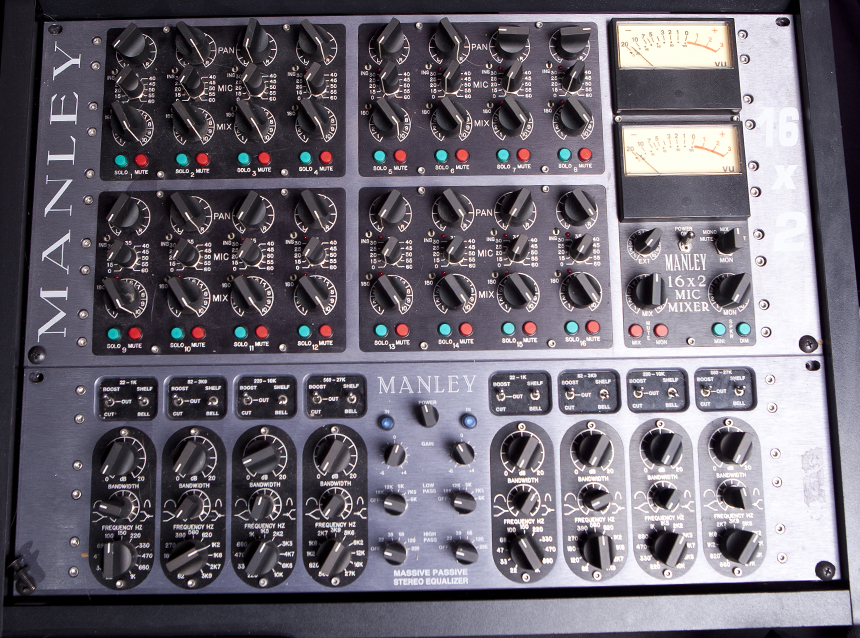
Manley
“The Manley summing mixer I have this constantly set up as 16 stereo auxiliaries in Logic. The second you split up your tracks, they open up massively. It’s like they’re stressed out when they’re going through channel one and two, and when they have their own channel on the Manley they just relax.
"When I was using just one channel and I had a compressor on output 3+4 for my kick, as soon as I sent it there, the kick got a lot bigger and the track had more space. And I just thought, ‘How big can it get?’, so I got this and it’s amazing.”
"Below that is the Manley Massive Passive I use this for strings a lot ’cause it’s so smooth. There’s a mastering version with stepped knobs but this is the pot version. I love it.”
Future Music is the number one magazine for today's producers. Packed with technique and technology we'll help you make great new music. All-access artist interviews, in-depth gear reviews, essential production tutorials and much more. Every marvellous monthly edition features reliable reviews of the latest and greatest hardware and software technology and techniques, unparalleled advice, in-depth interviews, sensational free samples and so much more to improve the experience and outcome of your music-making.


